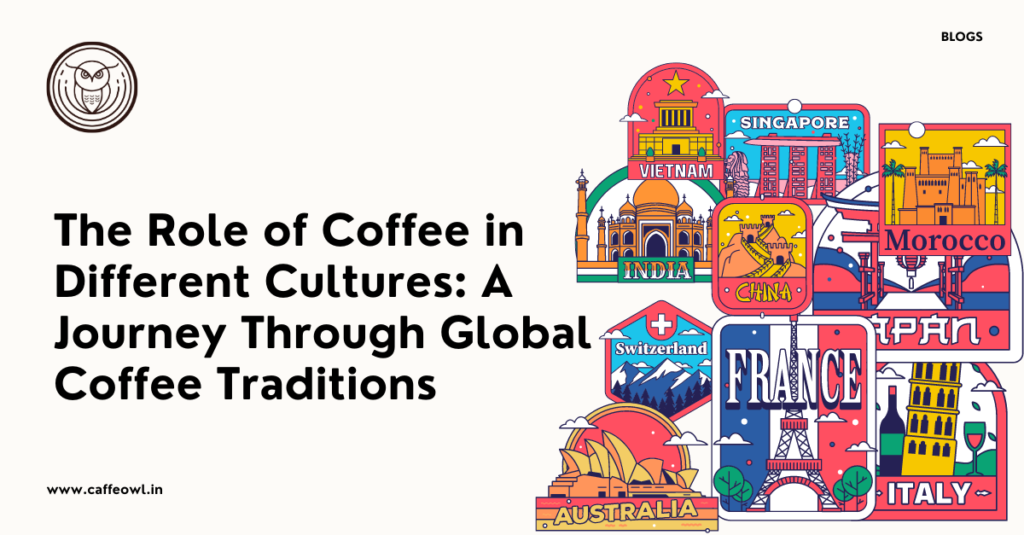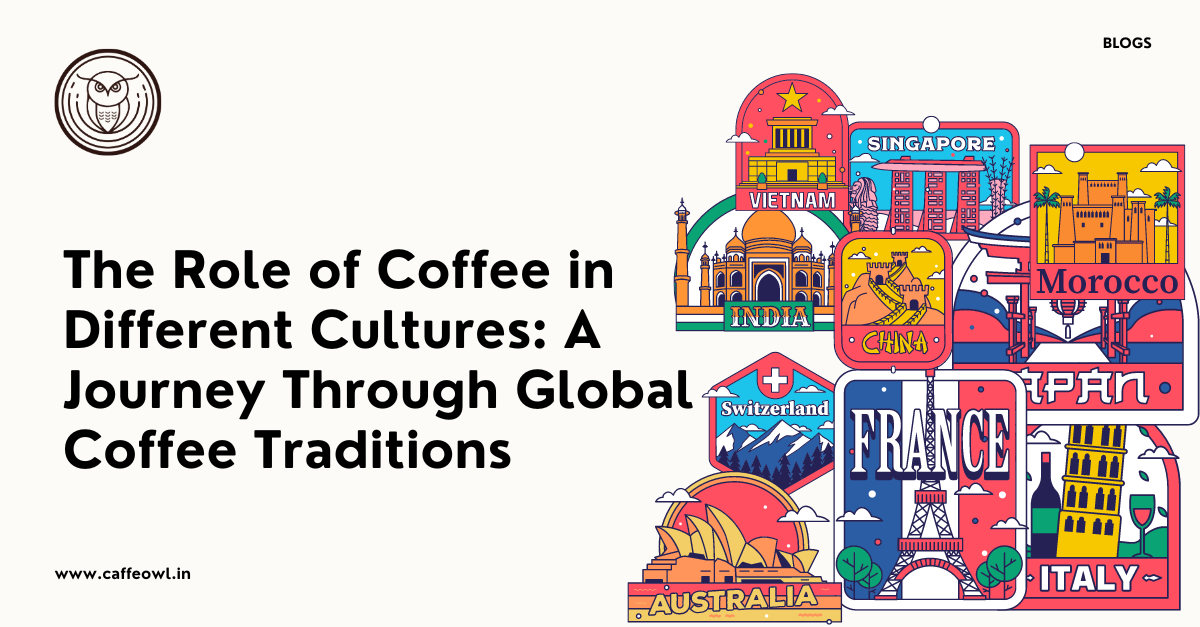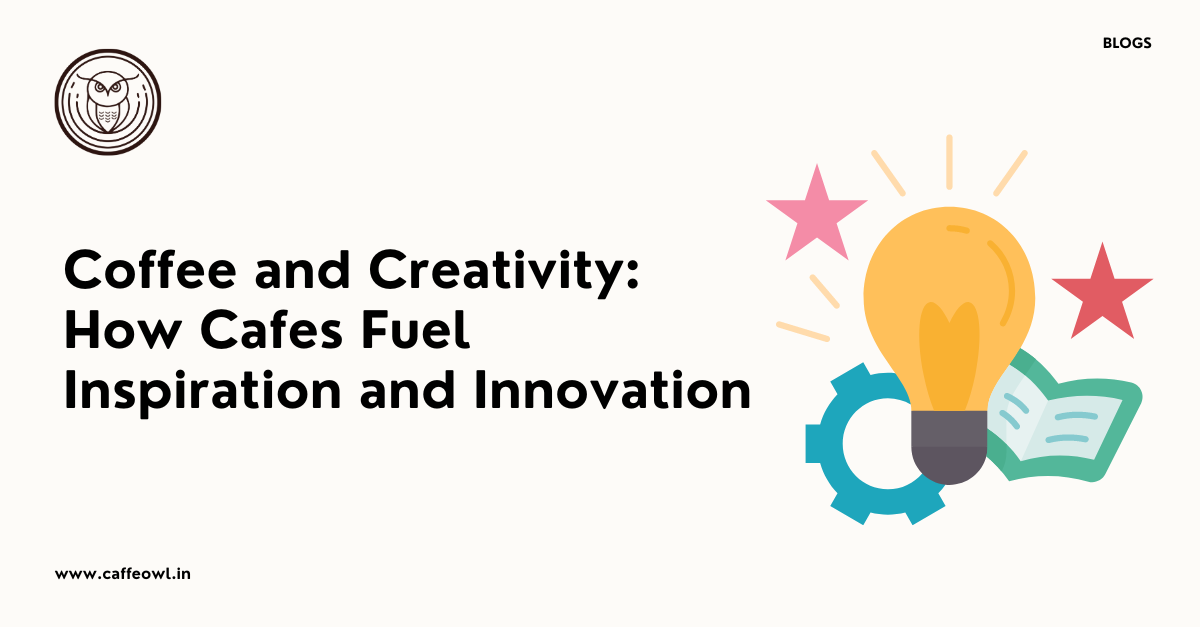Coffee is more than just a drink; it’s a ritual, a cultural symbol, and a way to connect with people. From Italian espresso to Turkish coffee, coffee traditions vary around the world, each with its unique preparation, flavors, and customs. In this blog, we’ll explore coffee’s cultural significance across various countries and how it’s enjoyed in different parts of the world.
1. Italy: Espresso as a Way of Life
Espresso Culture in Italy
The Italian Ritual
- Quick and Simple: In Italy, espresso is not just a drink but a ritual. Italians often stand at the bar, enjoy their espresso in one or two sips, and carry on with their day. It’s quick, simple, and a part of daily life.
- No Milk After Breakfast: Traditionally, Italians avoid milk-based coffee drinks like cappuccinos after breakfast, as they believe milk can interfere with digestion later in the day.
Social Aspect of Espresso
- Gathering at the Cafe: Espresso bars are popular social spots where friends meet for a quick coffee break, colleagues catch up, and locals exchange news. It’s a moment to connect with others.
- A Cultural Icon: Espresso represents Italian culture on the global stage, celebrated for its intensity, flavor, and artistry in preparation.
2. Turkey: The Art of Turkish Coffee
A Unique Brewing Method
Preparing Turkish Coffee
- Finely Ground Coffee: Turkish coffee is made from very finely ground coffee beans and brewed in a small pot called a cezve, which is heated over a flame.
- Slow Brewing: The coffee is boiled slowly, often with sugar, to create a rich, foamy brew. The grounds settle at the bottom, and the coffee is served unfiltered in small cups.
Turkish Coffee and Hospitality
- Symbol of Hospitality: Serving Turkish coffee to guests is a symbol of hospitality in Turkish culture. It’s often accompanied by sweets like lokum (Turkish delight).
- Coffee and Fortune Telling: In Turkey, people read the coffee grounds left in the cup to tell fortunes, a practice known as tasseography, which adds an element of mystique to the coffee-drinking experience.
3. Ethiopia: The Birthplace of Coffee
Ethiopian Coffee Ceremony
The Ceremony’s Importance
- A Social Ritual: In Ethiopia, the coffee ceremony is a time-honored tradition that involves roasting, grinding, and brewing coffee in front of guests. It’s a social gathering that symbolizes friendship and community.
- Three Rounds: The ceremony typically includes three rounds of coffee—Abol, Tona, and Baraka—each with its own significance. Drinking all three is believed to bring blessings.
Coffee’s Cultural Significance
- Respect for Tradition: Ethiopian coffee is served in small cups, and the ritualized process of preparation reflects a deep respect for the tradition and the cultural importance of coffee.
- A Heritage Drink: As the birthplace of coffee, Ethiopia’s coffee culture is integral to its national identity, celebrated for its unique flavors and rituals.
4. Japan: The Art of Slow Coffee
Pour-Over and Precision Brewing
Japan’s Love for Coffee
- Specialty Coffee Culture: Japan is known for its meticulous approach to coffee, particularly with pour-over methods like the Hario V60 and Chemex. The brewing process is precise, emphasizing quality over speed.
- Aesthetic Presentation: Japanese coffee culture emphasizes presentation, from beautiful ceramics to well-designed cafes that promote mindfulness and relaxation.
Coffee and Modern Japanese Culture
- Cafe Experience: Cafes in Japan range from traditional tea houses serving matcha to modern coffee bars specializing in single-origin coffee. Many cafes provide a serene, contemplative environment where people can enjoy their coffee slowly.
- Influence on Global Coffee Culture: Japan has influenced the global coffee scene with its precision brewing techniques and appreciation for coffee as a refined, artisanal experience.
5. France: The Art of Cafe Culture
French Cafe Etiquette
Coffee as a Leisurely Activity
- Slow Enjoyment: In France, coffee is meant to be enjoyed slowly, often while sitting at a cafe with a view of the street. It’s a leisurely experience, with coffee serving as a backdrop to conversation and relaxation.
- Cafe Culture: French cafes are not just for coffee; they’re social hubs where people spend hours reading, meeting friends, or simply watching the world go by.
The French Coffee Experience
- Café au Lait and Espresso: The most popular coffee drinks in France are espresso and café au lait, a mix of coffee and steamed milk. In the morning, it’s common to pair café au lait with a croissant or baguette.
- A National Pastime: Cafe culture in France is as much about the ambiance and people-watching as it is about the coffee itself. Cafes play a central role in French social life and are cherished as symbols of Parisian culture.
6. Brazil: Coffee as a Daily Ritual
Brazilian Coffee Culture
The Role of Coffee in Daily Life
- Strong and Sweet: Brazilians love their coffee strong and often sweetened. Cafézinho is a small, potent coffee served throughout the day, often without milk.
- Coffee at Work and Home: Coffee is a part of everyday life in Brazil, served at work meetings, social gatherings, and family get-togethers. It’s an essential part of hospitality, and guests are always offered a cup.
Brazil as a Coffee Producer
- Leading Coffee Producer: As one of the world’s largest coffee producers, Brazil has a rich coffee culture deeply intertwined with its economy and heritage.
- Regional Flavors: Brazilian coffee is known for its diverse flavors, influenced by different growing regions. Coffee is celebrated in Brazilian culture, both as a national beverage and as a symbol of pride.
7. Morocco: Coffee with a Twist
The Moroccan Coffee Experience
Spices and Aromas
- Unique Blends: In Morocco, coffee is often brewed with spices like cardamom, cinnamon, or nutmeg, creating a unique, aromatic experience.
- Spiced Coffee Rituals: Moroccan coffee rituals often involve special blends, where the spices enhance the richness of the coffee, making it a flavorful and exotic experience.
Social Gatherings
- Coffee and Tea Culture: While tea is more prevalent, coffee is still a popular drink, especially in urban areas. It’s common to gather with friends or family over a spiced coffee or mint tea.
- Cafe Society: Moroccan cafes are social hubs, especially in larger cities like Casablanca and Marrakech, where people enjoy coffee while discussing politics, culture, and life.
Conclusion
Coffee is more than a beverage—it’s a symbol of hospitality, a social experience, and a reflection of cultural identity. From Italy’s quick espresso to Ethiopia’s ceremonial coffee ritual, the way we drink coffee tells a story about our values, traditions, and way of life. Exploring coffee traditions around the world not only broadens our understanding of coffee but also connects us to a global community of coffee lovers.



